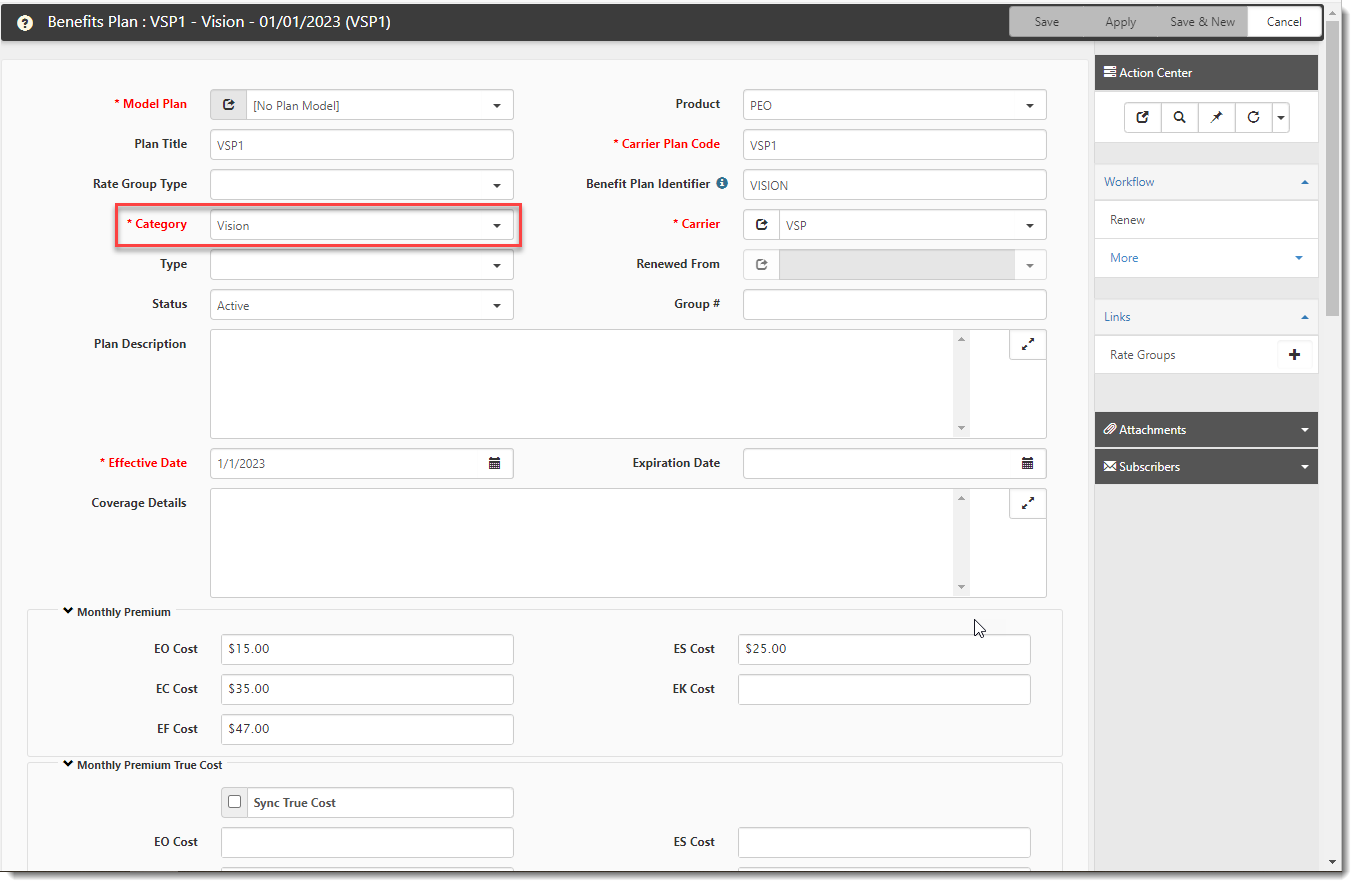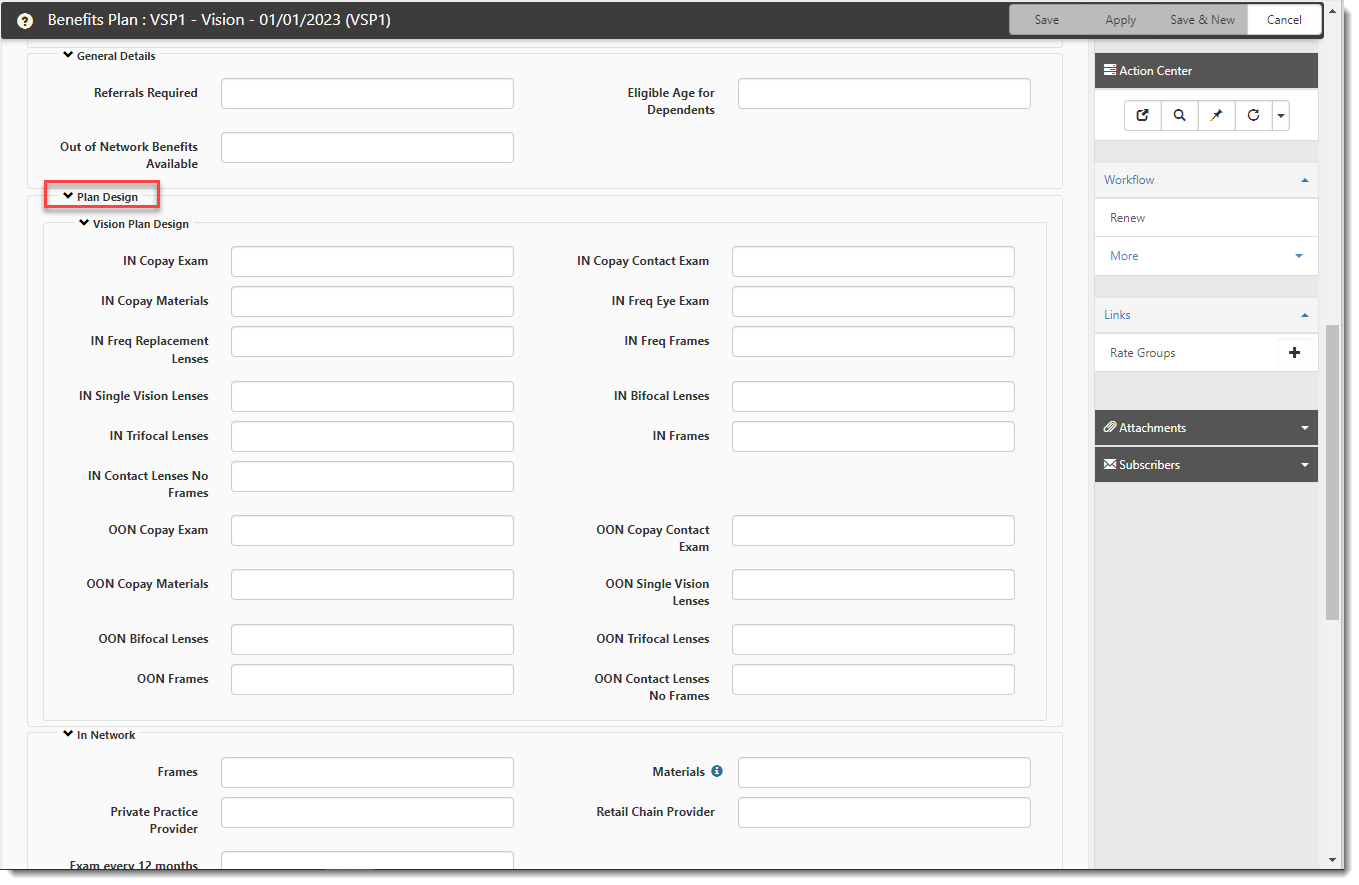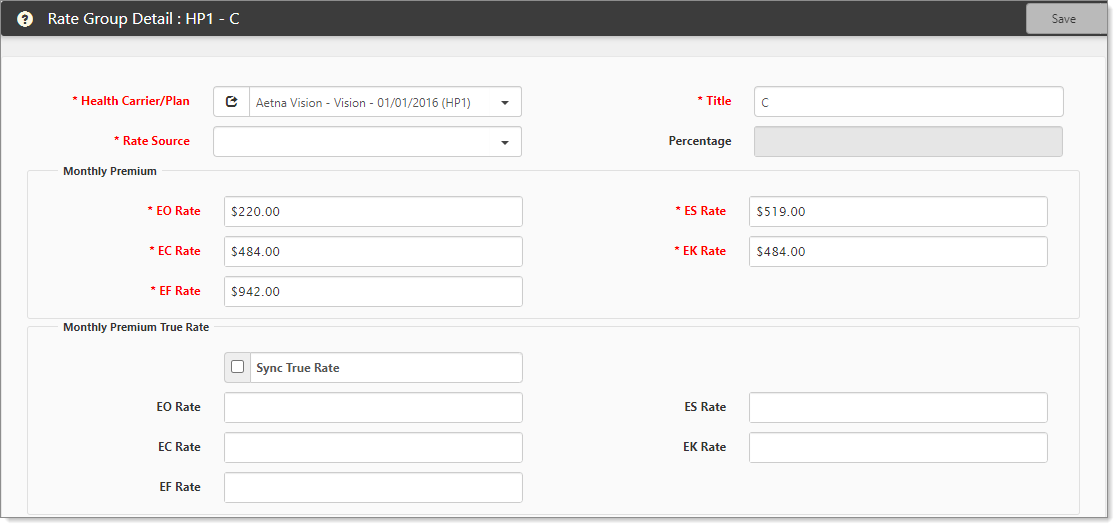Benefits Plan Management
Forms related to Benefits Plan management are accessed and managed from the Admin Workspace.
Accessing the Admin Workspace
There is more than one way to access the Admin Workspace:
-
From the modules bar, click
 Workspaces.
Workspaces.The Workspace Search dashboard opens.
-
Type %Admin in the search box to filter the list of workspaces and locate Admin Workspace.
OR
-
On the modules bar, on the right side, click <username> > Modules.
The Modules Search dashboard opens. The Admin Workspace is listed at the top of the dashboard.
Then, double-click the workspace row in the grid or click ![]() (Open) next to the workspace name.
(Open) next to the workspace name.
Managing Benefit Plans
Once in the Admin Workspace, type "Benefits" in the dataform search box to display a list of available forms related to benefits.
Master benefits plans are set up and managed in the Admin Workspace on the Benefits Plan dataform. These plans can then be assigned to each client or prospect as offered benefits plans.
The type of plan in the Category field (i.e., Health, Dental, Vision, Life, Supplemental, etc.) determines the fields that become available in the Plan Design fieldset.
For example, the Category on the Benefits Plan dataform shown here is Vision:
When you scroll to the Plan Design fieldset of the Benefits Plan dataform, you see that a Vision Plan Design sub-fieldset is displayed and it only contains fields related to the Vision plan type:
Premium versus true cost: It is typical in master plans to have a markup on your premium so that you can track what you quoted (and should be billing) your clients, and compare this to what you are liable to the carrier. The category of the plan determines what plan summary fields become available.
Model Benefits Plans are located in the Admin Workspace and are template plans for commonly used client level benefits plans. They are set up with all of the details filled in except for the premium.
Client Level Benefits Plans are added directly to the prospect or client workspace. This is where you would use a model plan to copy a plan from the Admin Workspace to a client level plan.
Rate Groups are typically A through E rankings. However, they can sometimes be a Risk Factor percentage. You can set up groups on master plans. Or, if you need to manage banded plans, you can also add rate groups to client level plans. It supports premium versus true cost. First, you must set up and manage Rate Groups through a dataform, which is related to the Benefit Plan. Rate Groups can be configured as a percentage of the premium or as a specific premium amount per coverage level (EE, ES, EC, EK, EF).
Plan Dependency Bundle is used with the HE_RequirePlanDependency business rule method to create business rules which require dependent OBPs (as designated by this flag) on a Benefits Batch in "New" or "Rejected" status to be marked "Selected". This lookup field uses the Benefit Plan Dependency Bundle lookup group. A hard error rule created using the HE_RequirePlanDependency business rule method is triggered on Apply or Save when there are one or more OBPs in a Benefits Batch in "New" or "Rejected" status (instead of "Selected" status) which match PlanDependency parameter specified in the rule. The resulting error message displays: You selected a plan in the [Benefit Plan Dependency Bundle] Benefit Plan Dependency Bundle plan, this requires that you select all [Benefit Plan Dependency Bundle] plans. The plans the user needs to select are listed in the message below the error.



